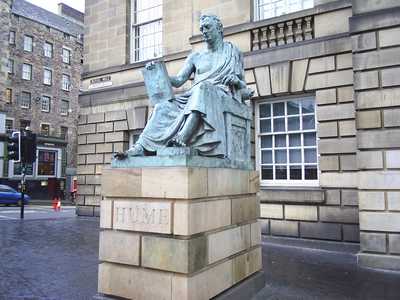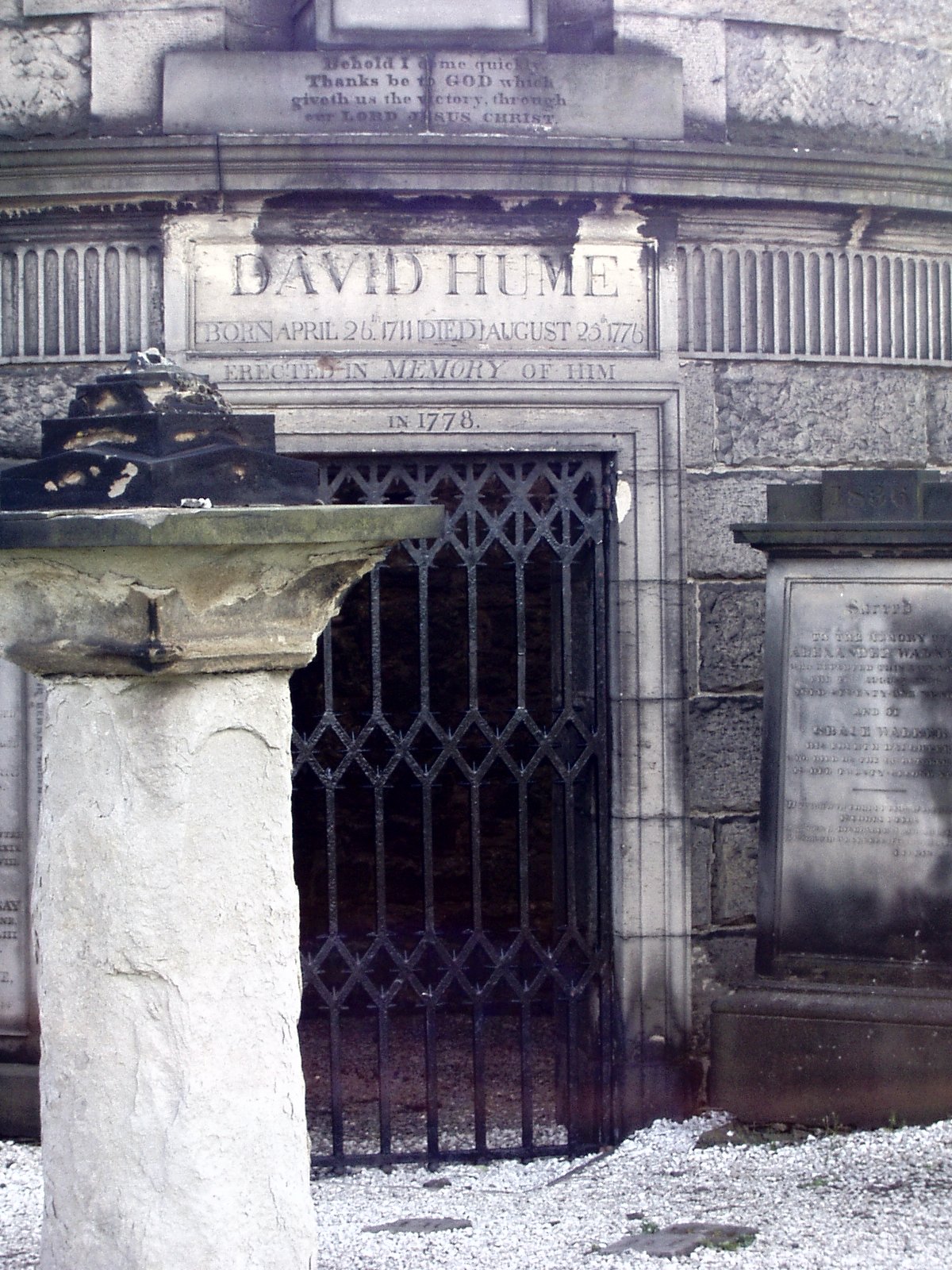
David Hume
This classic historian and philosopher of the eighteenth century, was born in Edinburgh the 26th of April in the year of 1711. Son of Mr. Joseph Home of Ninewells and Katherine Falconer. His philosophical thoughts are considered an important part of the Scottish Enlightenment.
At the age of 23, in March of 1734, Hume left Scotland for Bristol visiting London on the way. He had determined to attach himself to a merchant located at Bristol and to learn something of the business world. This venture, did not work out, so David Hume left Bristol and traveled to France. He was to stay three years in France, during which time he was to work on his first book, "A treatise of Human Nature".
During September of 1737, David Hume returned from France and passed 16 months at London polishing and publishing his work. In 1752, after a failed attempt to gain a university position (A place in Logic at Glasgow) Hume was appointed the Keeper of the advocates' library in Edinburgh.
In 1763 he went to the embassy at Paris as Lord Hertford's secretary, a place at which Hume as "Chargé d'affaires" stayed after Hertford went off to govern Ireland in 1765. On his return to England, in 1766, Hume was appointed by Lord Hertford's brother, General Conway, as an Under-Secretary of State, a position in the Home Office.
On account of failing health, Hume was obliged to give up his Home Office position after about a year. After a short stay at Bath, in order to take of its healing waters, he returned to Edinburgh to spend his last few years, he died there on the 25th of August of the year 1776 and he was buried in the Calton Hill cemetery, David hume never married.
Reference:
http://www.blupete.com/Literature/Biographies/Philosophy/Hume.htm
Image designed by:
Patricia Ávila
From:
http://www.vision.org/visionmedia/uploadedImages/Home/Articles/Biography/Articles/David_Hume%201711.jpg











